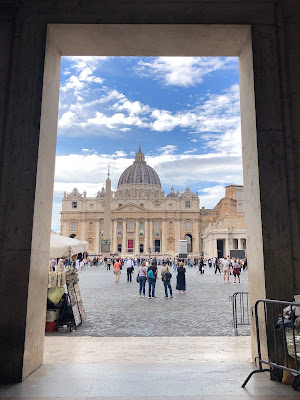“The synod is not over. It's only just beginning": Alain Faubert, Bishop of Valleyfield

“The synod is not over. It’s only just beginning.” That’s what Alain Faubert, Bishop of Valleyfield, Quebec, said about the recent month-long assembly in Rome in October that concluded the three-year Synod on Synodality process. The goal of that assembly, the second gathering to bring together clergy and lay people—the first was in 2023—was to “plant seeds,” said Faubert. “Now we have to do something with them to help them grow.” Faubert will play an important role in seeing that happen. In late October he was elected to the Ordinary Council of the General Secretariat of the Synod to work with other Council members to promote the implementation of the synod’s recommendations. He will also help prepare for the next synodal assembly. “I am very honored to have been elected,” he said of being chosen at the end of the last synodal assembly. “I want to contribute to the growth of an increasingly synodal Church.” Faubert comes to the task fr...





